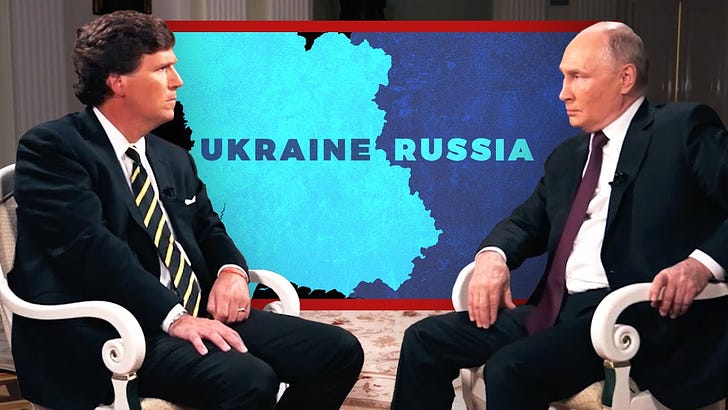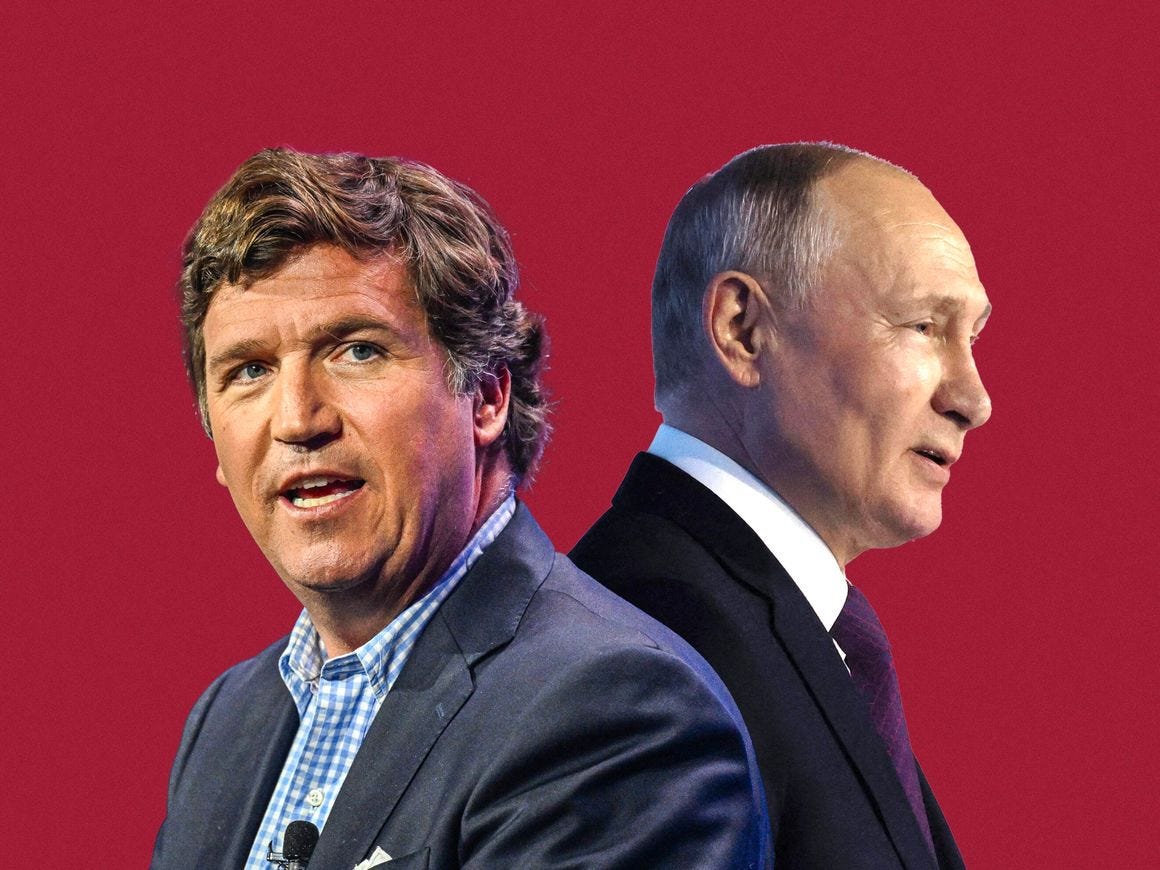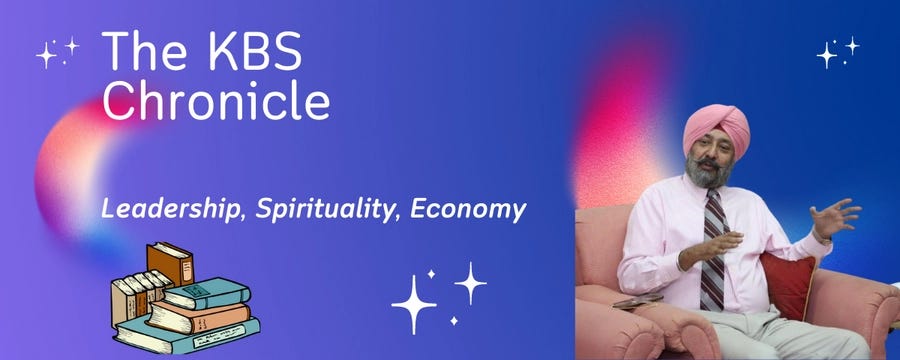Putin's Interview with Tucker Carlson: A Summary of the 2-hour Free-flowing Conservation
Putin's Candid Interview with Tucker Carlson: A Deep Dive into Russia-Ukraine Relations and the Search for Resolution. Our super-condensed precis.
Interview Overview and Putin’s Historical Justification for War
A Deep Dive into History
In a significant interview with Tucker Carlson that went online earlier today on February 9, 2024, Russian President Vladimir Putin delved into the historical complexities surrounding the ongoing conflict in Ukraine. Putin traced the intertwined histories of Russia and Ukraine back to the 8th century, emphasizing a longstanding historical claim to Ukrainian territories, highlighted by pivotal moments such as the formation of the Russian state and the Christianization of Russia in 988.
Historical Claims and Influence
The Role of External Powers
Putin outlined the historical interplay between Russian territories and the Polish-Lithuanian Commonwealth, suggesting that Ukrainian identity as distinct from Russian was shaped under foreign influence, aimed at diminishing Russian influence in the region.
The Soviet Era and Its Modern Implications
Creating the Soviet Ukraine
Discussing the post-revolutionary period, Putin criticized the Bolsheviks' creation of Soviet Ukraine, which included territories with little historical connection to Ukraine. He described Ukraine as an "artificial state," suggesting that its modern borders are a product of Soviet-era policies and agreements.
NATO Expansion and Relations with the West
Broken Promises and Strategic Concerns
Putin expressed frustration with NATO's eastward expansion, viewing it as a betrayal of post-Soviet expectations for partnership with the West. He recounted proposals for cooperation that were ultimately rejected, underscoring a sense of disillusionment with the West's approach.
U.S.-Russia Relations and Cooperation Challenges
Accusations of Western Interference
Putin highlighted past attempts at cooperation with the West, pointing to U.S. support for separatism in the Caucasus and accusing the CIA of supporting opposition forces in Russia. He lamented missed opportunities for peaceful resolution in Ukraine, attributing the current situation to Western actions.
Strategic Security and NATO's Expansion
Missile Defense and Unilateral Moves
Putin's proposal for a joint missile defense system with the U.S. and Europe was declined, prompting Russia to develop hypersonic systems in response to perceived threats. He also touched on the contentious issue of Ukraine's potential NATO membership, citing it as a breach of trust.
Western Influence and Ukraine's Political Turmoil
The 2014 Coup and EU Association Agreement Crisis
Putin criticized Western support for the 2014 coup in Ukraine and the subsequent political unrest, linking it to Ukraine's hesitance to sign the EU Association Agreement. He viewed these events as part of a broader pattern of Western interventionism.
Military Escalation and Ideological Conflict
Actions in Donbas and Denazification Efforts
Highlighting the military escalation in Donbas and the glorification of Nazi collaborators in Ukraine, Putin called for legislative actions to combat neo-Nazi ideologies, framing Russia's actions as defensive measures against external aggression and ideological extremism.
Negotiation Stalemates and Global Conflict Concerns
Openness to Dialogue
Despite failed negotiation attempts, Putin reiterated Russia's willingness to engage in talks, emphasizing the need for Western powers to reconsider their stance and facilitate a peaceful resolution. He dismissed fears of a global or nuclear conflict, stressing Russia's defensive posture.
Reflections on Leadership and Spiritual Values
The Role of Orthodox Christianity
Putin discussed the influence of Orthodox Christianity on Russian societal values and leadership, framing Russia's involvement in Ukraine within a context of Christian values and the necessity of defense in the face of threats.
Concluding Thoughts
Hope for Reconciliation
In closing, Putin expressed hope for future reconciliation between Russian and Ukrainian peoples, emphasizing the enduring historical and cultural connections that he believes will ultimately overcome current hostilities. He highlighted the importance of free speech and open dialogue in resolving conflicts and shaping societies.
This distilled summary captures the essence of Putin's extensive interview, providing insights into his perspective on the historical, cultural, and geopolitical factors that have shaped the Russia-Ukraine conflict and broader international relations.





